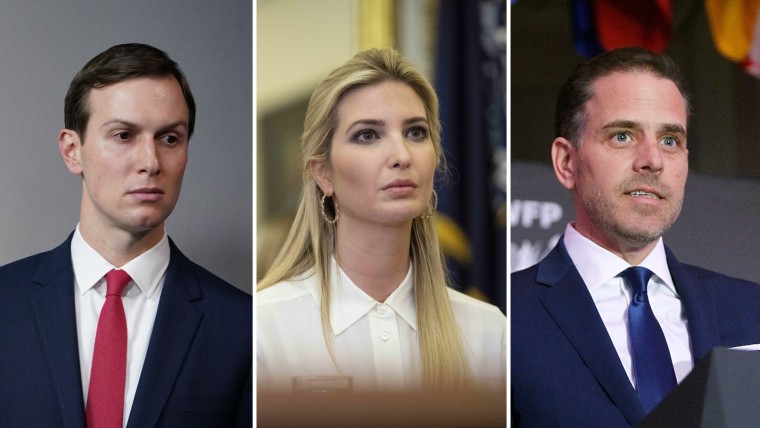Not since we were all wondering about what was in special counsel Robert Mueller’s report have so many people waited with bated breath for a potential federal court filing. Perhaps the most consequential legal question facing our country is whether former President Donald Trump will face criminal charges for his role in attempting to overturn the 2020 election results. If he is not held to account for his transgressions, it will irreparably undermine the idea that the rule of law stands as a guardrail against efforts to subvert our democracy.
Trump’s best defense now is to claim that he believed what he said when he erroneously claimed, despite all evidence to the contrary, that he had won the election.
We may remember the 2020 election as the one Trump lost and that Joe Biden won, but Trump nevertheless falsely claimed publicly that he had won. Trump’s best defense now is to claim that he believed what he said when he erroneously claimed, despite all evidence to the contrary, that he had won the election.
Special counsel Jack Smith is likely determining whether he can charge Trump with obstruction of an official proceeding, conspiracy to defraud the United States, inciting an insurrection and obstruction of justice. The biggest hurdle for prosecutors in this case is proving that Trump acted with a corrupt intent, which is a requirement of most, if not all, of the federal statutes that Trump would be charged with violating. If Trump can show that he believed the steaming pile of lies he tried to feed to the American public, that will, at least partially, undercut the prosecution’s claim that he acted with corrupt intent.
Jared Kushner, Trump’s son-in-law and former White House adviser, testified before a federal grand jury investigating, in part, Trump’s involvement in trying to subvert the 2020 election results. Kushner’s testimony could complicate matters for Smith. Kushner reportedly testified that it was his understanding that Trump believed the election had been stolen.
If those reports are accurate, Kushner’s testimony is not by any means a get-out-of-jail-free card for Trump. For one, others have reportedly testified under oath that Trump acknowledged that he had lost the election. Among them are Alyssa Farah Griffin, the former White House director of strategic communications, and Gen. Mark A. Milley, the former chairman of the Joint Chiefs of Staff.
Further complicating legal matters for Trump is that others have indicated that Trump was going to declare victory on election night regardless of what the vote count indicated. Steve Bannon, a former Trump strategist, was caught on an audio recording saying Trump would declare victory on election night. Bannon can be heard on the audio saying, “He’s gonna declare victory. But that doesn’t mean he’s a winner. … He’s just gonna say he’s a winner.” Similarly, former White House chief of staff Reince Priebus reportedly told a friend that Trump had plans to declare victory if early returns indicated that he was ahead.
Trump’s historically loyal son-in-law may not be the most credible witness.
In addition, Trump’s historically loyal son-in-law may not be the most credible witness. Kushner had an incentive to keep the false claims of election fraud alive. Kushner was intimately involved in helping Trump fundraise off those false claims, after he was defeated. And there are of course the close family ties between the two men — a jury may be more likely to believe former staffers than the president’s son-in-law. Further, Kushner himself has faced questions about whether he used his connections to Trump for his own economic gain, which doesn’t bode well for his credibility.
But there’s someone with an even bigger credibility problem, and that is Trump himself. Trump, and perhaps Kushner, may claim that Trump really and truly and absolutely believed his lies. But that doesn’t make them true. And it doesn’t make Trump’s claims believable. Trump may have lied more than 30,000 times while he was president. Some of these lies were serious, some were absurd, others were just nonsensical. Perhaps you remember Trump’s claims that the coronavirus was “totally under control,” or that the noise from windmills causes cancer.
At this point, what we have is masses of objective evidence indicating Trump’s claims about widespread election fraud and his ability to declare victory were lies. We also have others, like former Attorney General Bill Barr, former Deputy Attorney General Richard Donoghue, and former Acting Attorney General Jeffrey Rosen, without the apparent conflict of interest that Kushner has, testifying that they had told Trump that what he was saying was baseless.
And on the other side of the scale we have Trump, with everything to lose, and his son-in-law, with an enormous amount to lose, claiming that he might have believed his lies. Based on what we know, federal prosecutors could still convince a jury that Trump acted with a corrupt intent. And they could therefore still move forward on charges that Trump attempted to overturn the 2020 election.


